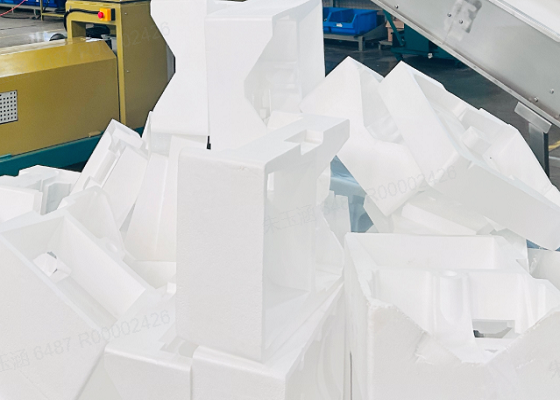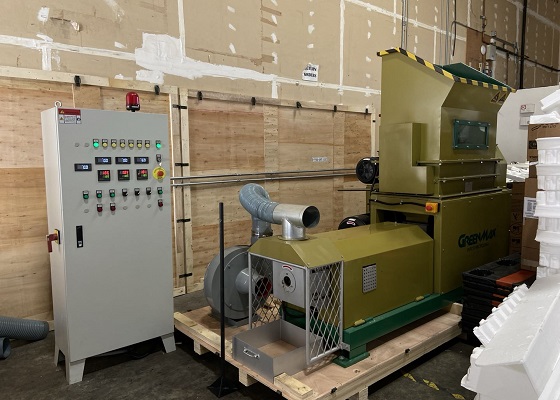The use of EPS densifiers for waste recycling has received strong support from various fields around the world.
A recent recycling survey conducted by the EPS Industry Alliance shows that 168.6 million pounds of expanded polystyrene shipping and protective packaging waste will be eliminated in North America by 2022, up from 136.8 million pounds in 2019. It shows 61 million pounds of material originating from post-consumer waste. In the wake of multiple policies across the U.S. and other countries around the world banning or restricting certain uses of EPS materials in categories such as food service utensils, industry groups have been working to raise awareness of EPS recycling systems and continue to demonstrate initiatives to the public. effectiveness. The amount of EPS recycling collected by FRC-supported projects nearly doubled between 2019 and 2023, from 841,000 pounds to 1.6 million pounds. There are more and more companies using EPS recycling equipment for recycling.

Under the California Packaging Project EPR, manufacturers of EPS tableware such as cups and takeout containers must demonstrate that these items are recycled in the state at a rate of at least 25% by January 1, 2025. The threshold will be raised periodically until 2032, when recycling rates must reach 65%. Otherwise, they would not be allowed to sell the items in the state. Although these regulations seem strict, it can be seen that people's attitude towards EPS is definitely not completely prohibited, whether in terms of funds or regulations, especially when there is a suitable recycling method. We agree with the use of EPS food packaging enable better business models.

Although chemical recycling technology is currently popular, many people in the industry question that this method will bring other types of environmental pollution and is not a reliable method. Therefore, using EPS densifiers for recycling, this mechanical recycling method is still highly respected. of. Among the recycling activities supported by FRC in recent years, a considerable amount of funds have been used to purchase EPS densifiers to compress the huge EPS waste and achieve better recycling. GREENMAX EPS densifier, which has the highest compression ratio, can reach 90:1. It uses efficient hot melt technology to squeeze out the air in EPS to achieve high-intensity compression.
Using EPS densifier to achieve waste recycling has received strong support from various fields around the world. If you are also interested in this, please feel free to discuss your ideas with GREENMAX!

